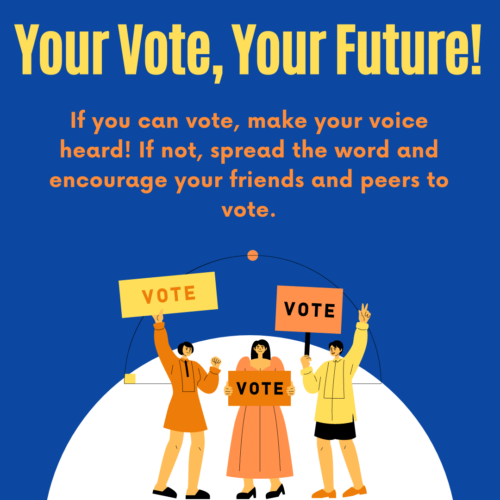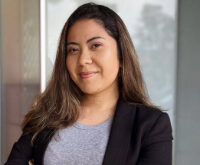FORBESBrandVoice®
06/20/18
When I Walked Across The Stage, My Parents Were Graduating, Too
by Emily Lin
“As a first-generation college student, I know firsthand the power that a college education has to change lives, not just for graduates, but for their families too. In many ways, when I earned my degree from the University of California, Irvine last week, my parents graduated with me. I owe my diploma to their unconditional support, and to the courage they had to move to this country to provide a better life for our family.
I was born in China, in the city of GuangZhou, GuangDong Province. My parents grew up in poor households where the norm was to work full-time as soon as possible. They needed to help their parents ensure that their families had enough to eat. So, when they were just teenagers both my mother and father left school to start work to help their parents provide for their families.
My parents knew a college education was a ticket to a better life but they never had the chance to get it. But they knew they wanted me to get the best possible education. They started preparing early. They sacrificed a lot to make sure I got the schooling I needed.
When I was born, my mom paid more than half of her salary to my babysitter and almost all of her check on my Pre-K education.
And when I was just 10 years old, my parents and I immigrated to the United States. Our impetus to move 7,000 miles was partly to reunite our extended family, but also because my parents believed I would have a better opportunity for a quality education in the United States.
In China, access to college is limited to one standardized college entrance exam that students take at the end of high school. To prepare for that exam, students spend their high school years memorizing material rather than cultivating the curiosity for learning. My parents wanted something different for me.
I was lucky to enroll at the Chinese Education Center in San Francisco, a bilingual elementary school in the city’s Unified School District that provides transitional assistance to immigrant students. All the classes were bilingual so my classmates and I weren’t left alone in a strange environment catching up to the curriculum. How fortunate I was to I get a lot of help from a great public education system that understands the needs of students and establishes programs to target those needs. I thrived there and did well enough later at Marina Middle School to be admitted to Lowell High, a highly competitive college preparatory public high school in San Francisco. This week, I graduated from the University of California, Irvine with degrees in International Relations and Business Administration. I became the first person in my family to graduate from college. My parents and sister were there to watch me cross the stage. In so many ways, we all graduated together.
Being a first-generation college student was exhilarating and intimidating, especially as my parents’ English is very limited. It meant picking up responsibilities, like translating for my parents in the ER, explaining mortgage documents and other financial matters to them, and becoming independent as soon as I could.
When it came to applying to college, my parents trusted that I could make the best decision for myself. But the application process was overwhelming. Luckily, I had the help of First Graduate, a non-profit organization in San Francisco that helps first-generation students prepare for college beginning in middle school. At First Graduate, I learned how to navigate the process of applying for both college and financial aid. I learned how to fill out FAFSA form and how to recognize the differences between kinds of subsidized federal loans. Learning about all the different loans and grants is almost like taking another class.
But many first-generation students don’t have non-profits like First Graduate® to provide them with personal statement coaches, college advisors, and a support network. And applying to college alone can be overwhelming. Far too few first generation students enroll in college. Only 72% percent of first-generation students enroll in college within 10 years of high school graduation. That’s a big difference from the 93% of non-first-generation students who enroll in college within the first decade after high school.
When it comes to deciding which college to attend, first-generation students are limited by what they can afford. And because of the rising tuition cost and other college expenses, first-generation students are more likely to enroll in community or technical colleges.
Community colleges offer excellent opportunities for first-generation students: for those who have to work full-time and cannot afford to take a full course load without holding down a job; for those who cannot leave home because of their family responsibilities; and for those who seek the most affordable way to get a quality education without taking on insurmountable debt. As first-generation college students, we are often expected to be the breadwinner of the household after graduation. Once we receive the skills needed for higher wage jobs through our college degrees, we must support our parents while paying off student loans and covering our rent, food, transportation, and other living costs.
But with the rising costs of both tuition and living expenses, even going to the community college seems out of financial reach for first-generation students. And we are less likely to complete a degree at community colleges or transfer to a four-year university. For far too many, it’s difficult to balance a college education while trying to earn a living.
But, fortunately, a rapidly growing number of communities and states are creating College Promise programs, which cover tuition and fees for residents to start and complete their education at the community college. By removing financial barriers and providing support services, these programs enable more students, especially first-generation students, to complete a college degree or certificate. I am proud to say that my hometown, San Francisco, offers one of the most inclusive College Promise programs in the county. Since its launch in fall 2017, the Free City program makes a community college education free to every resident of the city, regardless of age or income, whether they enroll full-time, or take a class or two.
This spring, I worked as fellow at the College Promise Campaign because I wanted to broaden public support for free college. I wanted to join the team that believes everyone deserves an opportunity to access higher education without taking on unmanageable debt. The College Promise Campaign serves as the nation’s public voice for College Promise programs at the local and state level. When the campaign started in 2015, there were about only 50 programs. Now, there are more than 200 programs in 44 states. To date, there are 18 statewide programs including California, Tennessee, and Hawaii. And there are city-wide programs all over the country in places like Boston, Detroit, Jacksonville, Providence, and Oakland.
Making community college free provides more opportunities to first-generation students and people like my parents who never had a chance to get a higher education. Like many first-generation college students who walked across the graduation stage this month, I recognized that I did not accomplish this achievement alone. My bachelor’s degree is made possible because my parents prioritized my future before their leisure, so they work as much as possible to provide a roof over my head and put food on the table.
Let’s make higher education accessible by making community college free for more first-generation students and those who think a college education is beyond their means.
Please share my story if you believe everyone should be able to get higher education without unmanageable debt. And join the movement at collegepromise.org/join.”
###
************************************************************************
FOR IMMEDIATE RELEASE
09/28/15
SAN FRANCISCO, CA – First Graduate, a San Francisco-based college success program that helps students become the first in their families to graduate from college, has been selected as one of the 20 non-governmental organizations to be included in the Epic Foundation’s first global donor portfolio.
The Epic Foundation team reviewed 1,400 applications from across the world using a three-stage process that included in-depth analysis, interviews with management and field evaluations.
“We have used our passion, our energy and one of the most advanced selection methodologies to review applications” said Nicola Crosta, Epic Foundation’s Executive Vice-President “and I am confident that the resulting 2015 Epic Portfolio includes some of the finest NGOs and social enterprise around the World”.
“First Graduate” he went on “is a great example of an innovative NGO, led by a competent, dynamic team and focusing on a great cause”.
“We are thrilled and honored to have been selected by the Epic Foundation after such a rigorous selection process” said Thomas Ahn, Executive Director at First Graduate. “For us it represents validation of the work we are doing to help close the achievement gap in San Francisco public schools, and ensure that every student in our city has a fighting chance to go to college.
“Funding and exposure from being in the Epic Foundation portfolio also represents a unique opportunity for First Graduate® to jump into our 5-year strategic growth plan with both feet. Our goal is to scale our program to serve 2,000 students by 2020 so that we can go beyond impacting individual students to fundamentally changing entire schools, neighborhoods, communities, and San Francisco”.
Over the next four months the Epic Foundation will travel the world to present the portfolio to its community of entrepreneurs, private banks, family offices, “voices” (e.g. entertainers and athletes), startups and corporate donors, through a “global roadshow” in order to attract large donations for the portfolio of organizations. Epic will distribute 100% of the funds it receives from donors to the portfolio of organizations.
“The 2015 Epic Portfolio will appeal to donors passionate about supporting organizations that are fighting inequalities faced by children and youth around the world,” said Epic Foundation Founder & CEO Alexandre Mars.
###
************************************************************************
Terri Forman
Director of Development
tforman@firstgraduate.org
Founded in 2001, First Graduate® currently helps 371 San Francisco-based students in middle school, high school and college with the academic coaching, high school guidance, tutoring, mentoring, career exploration, college counseling and support they need to become first generation college graduates. 100 percent of First Graduate’s high school seniors have enrolled in colleges and universities nationwide and four cohorts of students have successfully earned their college degrees and are either pursuing careers in their chosen fields or are enrolled in graduate school. Learn more at www.firstgraduate.org.


